July 6, 2018
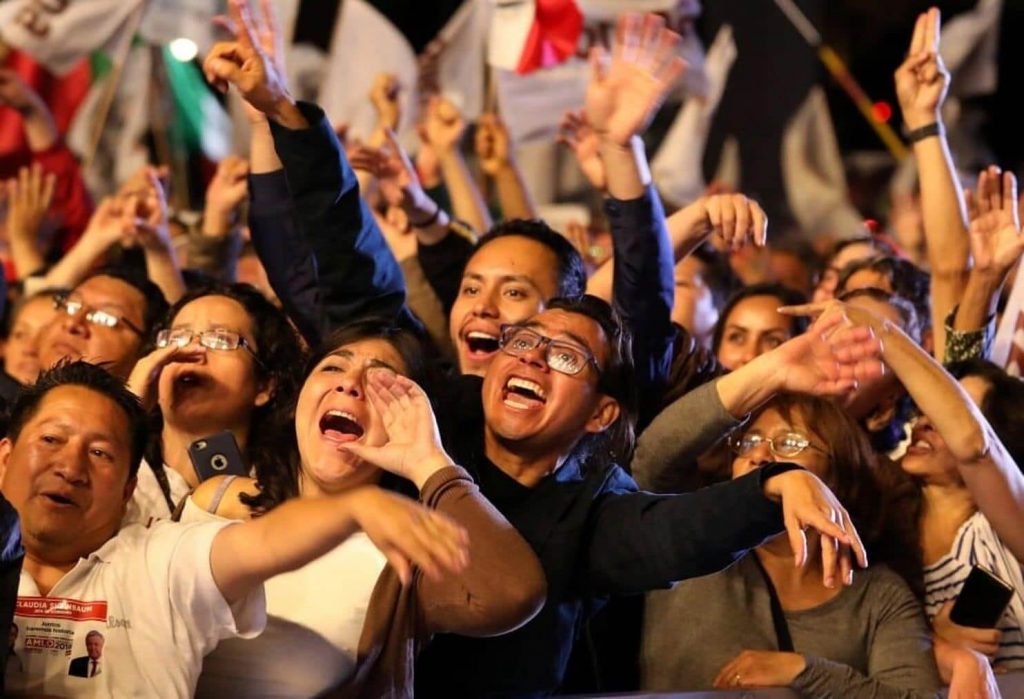
Supporters of President-Elect Andres Manuel Lopez Obrador gathered in Mexico City after the Sunday election. Reuters, Goran Tomasevic.

The Assad government’s offensives in Deraa province have intensified, and the regime now controls most of the region just two weeks after initial attacks. Jordan has diplomatically intervened, sparking a new round of negotiations between Russia and the rebels in the southwestern region. However, these efforts have been unsuccessful in bringing safety to Deraa province’s 800,000 civilians. In response, Jordanians have been working to supply aid to the Deraa refugees.
Syrian refugees who have fled to Lebanon are continuing their return, with uncertainty and cautious hope.
The US’s stance on Syria took a sharp turn this week. US National Security Adviser John Bolton stated that President Trump is not opposed to the reinstatement of Assad’s regime. In return, the US hopes to have Russia’s help in removing Iran from Syria. Trump and Russian Premier Vladimir Putin are scheduled to discuss this issue on July 16th.
Similarly, Israel, also sensing that Assad’s complete takeover is imminent, has demanded Iranian withdrawal from the country. Furthermore, Israel has ramped up its military presence in the Golan Heights frontier, and occupation near its border with Syria. These actions raise questions about the legitimacy of Israel’s occupation of the Golan Heights, its role in providing humanitarian aid, as well as its alleged neutrality in the conflict despite the numerous airstrikes it has carried out.
Iraq, on the other hand, has started constructing a fence along the Iraq-Syria border to keep ISIL members out.

This week, new reports place the death toll in Nicaragua at 309, over 1,500 injured, and 156 missing since the beginning of the violence nearly three months ago. The March of Flowers this past Saturday, a demonstration to commemorate the students killed at the initial university protests, resulted in one death and ten wounded demonstrators. Many protesters have been denied medical attention at government-run hospitals, resulting in makeshift clinics at university centers and Catholic churches manned by volunteer medical practitioners. On Monday, Amnesty International reported that an Interdisciplinary Groups of Independent Experts (GIEI) of the Inter-American Commission on Human Rights made 15 recommendations to government authorities to promote freedom among citizens without fear.
A group of multinational trade companies that includes Adidas, Patagonia, New Balance, Nike, Fanatics, Fair Labor Association, Under Armor, Gab Inc., and the American Apparel & Footwear Association signed a letter addressed to Ortega insisting on an end to the violent repression of citizens and urging the president to continue peaceful negotiations. Meanwhile, the ongoing violence has crushed the once vibrant tourist industry, leaving 200,000 people unemployed. Projections from the Nicaraguan Foundation for Economic and Social Development (Funides) projects that 1.3 million of Nicaragua’s 6.2 million people risk falling into poverty if the violence
continues.
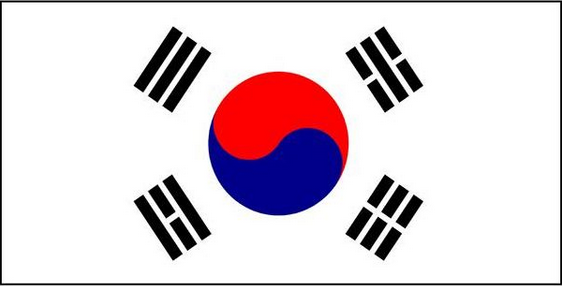

US Secretary of State Mike Pompeo arrived in North Korea this Friday amidst the country’s development of nuclear-weapon infrastructure. In spite of North Korea’s promise to denuclearize at last month’s summit, satellite images show the continuous growth of several of weapon facilities, placing special importance on Pompeo’s visit and his efforts to ease tensions between the two countries.
Influxes of Yemeni refugees in South Korea sparked national outrage and protests this week. 520,000 South Koreans have signed a petition against their government’s relaxed national immigration policy, and hundreds marched Saturday in Jeju Island and Seoul. Refugee relief organizations have allegedly received threats amidst the rising anti-refugee sentiment in the country.
The #MeToo movement is gaining ground in South Korea as former provincial governor Ahn Hee-jung is put on trial for raping his former secretary. Women also plan to boycott spending on the first Sunday of every month to protest their government’s “pink tax,” under which women’s products are priced much higher than men’s products. Both movements are testaments to growing female activism in the country, and set positive precedents for the days to come.
The South Korean government plans on implementing new policies to reverse the country’s low birth rate, including increased financial support for single parents and subsidized costs for infertility treatments.

Although Myanmar’s government has claimed that it is prepared to take back Rohingya refugees (whose numbers exceed 700,000), the Red Cross has declared that conditions are still very unsafe and inadequate for repatriation. The Rohingya people are still not guaranteed citizenship nor freedom of movement within Myanmar.
Furthermore, the government has seized large swaths of land and Rohingya villages in the northern Rakhine state under the guise of reconstruction and development. Government-built “transit camps” for refugees remain empty as refugees refuse to come back to a place where their safety is endangered. Fewer than 200 out of 700,000 displaced Rohingya people have returned to the country; the prolonged delays in repatriation are also straining relations between Bangladesh and Myanmar.
Wa Lone and Kyaw Soe Oo, two Reuters reporters, were arrested last December for their investigation of the massacre of ten Rohingya Muslims in Rakhine state. Next week, on July 9th, the court will decide whether the two will face full trial.

The trade war between the United States and China escalated as President Trump imposed a tariff on $34 billion worth of Chinese products, a significant hike which would hurt both American and Chinese consumers and producers. Chinese officials have repeatedly mentioned that, in response to the tariffs, they would tax an equal amount of American exports—including pork, soybeans and automobiles. In conjunction with tariffs imposed on foreign steel, aluminum, solar panels, and washing machines from its allied countries, there is a long-term threat on the view of the United States as a place to export. Even the Federal Reserve is finding it difficult to mitigate the pain of the trade war, and in case of recession, it will be difficult for the institution to bailout the broader economy.
On the 4th of July, activists campaigning to abolish ICE were arrested at the Statue of Liberty. Therese Okoumo, an immigrant who was born and educated in the Democratic Republic of Congo, climbed to the base of the statue and was there for several hours before the police took her into custody. At least six people were arrested for unfurling a banner demanding the abolishment of ICE. These arrests come in response to Trump’s executive order which seeks to detain families of illegal immigrants until their legal hearings have concluded.
The NATO summit is scheduled for the 11-12th of July, and President Trump has shaken decades of American defense policy by criticizing the organization. He has demanded that member nations increase their defense spending to the target of 2% of their GDP and has placed emphasize on counter-terrorism efforts. With the continued disdain of both the EU and NATO, it will be interesting to see whether history will look back on this decision as a foreign policy blunder in an effort to tackle the rising powers in the East.
The United States has also imposed sanctions over violence and corruption against three Nicaraguan individuals. Those sanctioned include Francisco Javier Diaz Madriz, Fidel Antonio Moreno Briones, and Jose Francisco Lopez Centeno who have all been accused of curtailing fundamental freedoms and spiraling unrest in the strife-ridden country.

Mexico held its largest elections ever this Sunday, with more than 1300 offices on ballots across the country. Populist frontrunner, Andres Manuel Lopez Obrador (AMLO), won 53% of the vote, the first time a president has won with the majority of the vote since multiparty elections began in 2000. He ran under his own personalistic party, the National Regeneration Movement (MORENA), in coalition with labor and far-right parties. The legislative elections have yet to yield final results, but AMLO’s coalition is expected to win a majority in both houses of Congress, giving the President-Elect a broad mandate to enact reforms.
AMLO’s election is seen as a response to rising corruption, increased violence, and strained relations with the United States. Concerns about his commitment to democratic norms have worried experts around the world as he has often rejected election results, violated campaign expenditure laws, frequently changed his policy stances, and disregarded institutional guardrails in the country. Business leaders were particularly rattled by his promises of expanding social program reforms and rolling back the privatization of the oil sector. AMLO met after the election with the business community in order to assuage concerns, and promised to establish a government-funded apprenticeship program.
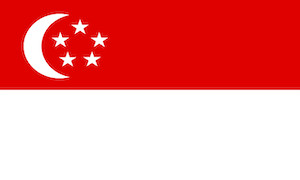
Minister of Singapore, Ng Eng Hen, told reporters last Friday that the nation faces high terrorism threat levels stemming from radicalized, returning fighters and citizens radicalizing at home via the internet. Ng postulated that the recent increased number of threats and attacks in surrounding Southeast Asian countries is cause for structural changes in Singapore’s military as well as the need for stronger regional alliances to help combat transnational terrorist threats.
South Korean President Moon has announced plans to meet with Singaporean President Halimah Yacob and Prime Minister Lee Hsien Loong in an effort to assess bilateral relations and discuss further cooperation. Presidential office spokesman Kim Eui-kyeom also said the President Moon plans to discuss denuclearization of the Korean Peninsula.
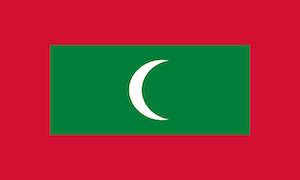
The Indian External Affairs Ministry has expressed concern over the announcement of Maldives’ elections without democratic institutions. India expressed the need for the rule of law and an independent judiciary in the country before the elections are held in September this year. Reporters in Maldives who cover court cases are being targeted by penal code charges. The new amendment to the penal code would make it illegal for journalists to portray a court as lacking the capacity to rule independently and without influence. It will also make it illegal to use audio, video or any electronic equipment inside the courtroom.
The four-party Joint Opposition in Maldives declared their support for the Maldivian Democratic Party’s (MDP) parliamentary group leader, Ibrahim Mohammed Solih in the upcoming elections. This came after ex-President and MDP leader Mohammed Nasheed unilaterally decided that he would not be challenging President Abdulla Yameen Abdul Gayoom in the upcoming elections. The ex-President has continuously expressed concern over the lack of the rule of law and democratic apparatus in the country and has cited them as reasons for his decision. President Yameen’s campaign places emphasis on Islam and infrastructure. He portrays the opposition as anti-Islamic and urges the country to choose economic development over secular ideals.
Diego García-Sayán, a United Nations Human Rights Expert, has expressed dismay at the arrest of two justices who were involved with the February 1 Supreme Court decision which ordered the reinstatement of 12 suspended Members of the Parliament and release and retrial of nine political leaders. Maldives has also made a re-appearance on the US human trafficking watch list and has been downgraded over failure to meet minimum standards of elimination.

Campaigning for Zimbabwe’s presidency continues after last week’s blast which targeted a rally for incumbent President Mnangagwa. Fears of violence continue, especially in light of the extensive violence following the 2008 elections. Both Mnangagwa and opposition leader Nelson Chamisa have denounced the violence and returned to the campaign trail.
The currency crisis in the country continues as the new Bond Notes lose value despite being theoretically tied to the US dollar. Fears of further inflation and a collapse of the Bond currency are partially fueled by the uncertainty of the upcoming elections, and foreign investors are reluctant to commit before the results.
The United States Agency for International Development has stopped funding three key civil society groups in the country. One of these groups is at the forefront of an election validation project aimed at ensuring the July elections are free and fair.
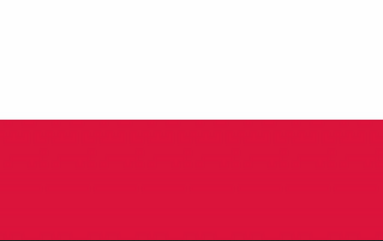
Poland’s collapsing judiciary crisis escalated to its highest point this week, as the ruling Law and Justice Party pushed to purge the Supreme Court of opposition. The Parliament is trying to enforce a law that would require all justices older than 65 to request permission from the president in order to remain on the court. The law is widely seen as a push towards making the judiciary subservient to elected politicians. President of the court, Malgorzata Gersdorf, showed up to work despite being in violation of the new law.
Solidarity leader Lech Walesa called for mass protests if the government continues to interfere with the judiciary. Tens of thousands of protestors all over Poland gathered to express their concern for the state of the rule of law in the country.
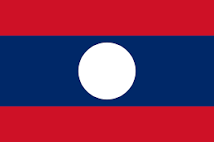
Vietnam’s and Laos’s justice bodies came together this past week to implement border security measures and to streamline how to deal with undocumented immigration and marriage. This bilateral collaboration resulted in new laws which grant citizenship to undocumented immigrants, so long as both countries hold up all parts of the new agreement.
Two Vietnamese drug kingpins were killed this week on in Laos after a two-day standoff, highlighting continued issues with illicit drug trade in the “Golden Triangle” Region of Laos, Thailand, and Myanmar.

The Vietnamese authorities have come up with a new cybersecurity law which requires internet companies to “scrub critical content and hand over user data” if the government requests it. In a country where there is no free press, social media offers the only respite for limited independent speech; this crucial lifeline will be taken away from the beginning of next year. Last year, the Vietnamese Government announced a 10,000 strong cybersecurity army tasked with monitoring incendiary material online. Many activists are now turning to Minds, a United States based open platform, which provides a safer alternative to Facebook and protects the identity of its users.
Minar Pimple, Amnesty International’s Senior Director for Global Operations, has criticized the arrest of Vietnamese blogger and political journalist Le Anh Hung. Le Anh Hung was arrested for abusing democratic freedom and publishing an open letter that criticized the government’s policy on economic zones which gives special incentive to foreign investors. He will be detained for three months and could face up to seven years in prison.
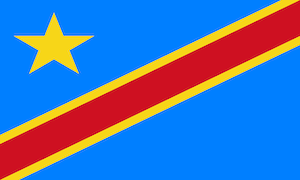
Conflicts between Ugandan rebel forces and the DRC’s military have left four Ugandan soldiers and three civilians dead along the border between the two countries. The Allied Democratic Forces militia (a group of Ugandan-Muslim radicals intent on overthrowing Uganda’s President, Yoweri Museveni) are deeply entrenched within DRC’s mineral production and were likely involved in the conflict.
Candidate registration for DRC’s upcoming presidential race begins on July 25th, and questions about who will run and whether the elections will be free and fair are rampant. Possible candidates include Moïse Katumbi, Vital Kamerhe, Félix Tshisekedi, and Jean-Pierre Bemba. While current president Kabila issued a statement that he would not run in December’s election, his actual commitment to stepping down remains unclear.

President Juan Manuel Santos has called for an investigation into the murders of nearly 300 land and human rights activists who have been murdered in the past two years. Ombudsman and public defender Carlos Alfonso Negret stated that between January 1, 2016 and June 30 of this year, 311 Colombian activists were murdered. There is increasing pressure on President-elect Ivan Duque to speak out against the murders of these activists.
Ana Maria Cortes is one of the social leaders who was murdered by paramilitary troops this Wednesday. She was also the coordinator for Gustavo Petro’s presidential campaign in the city of Cáceres, Antioquia. Petro was Colombia’s losing candidate in last month’s elections and has condemned the systemic threats which have been sent to his supporters and the organizations he works with.
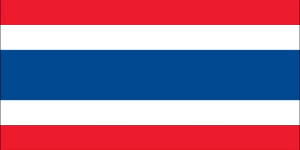
On Wednesday, the Thai government pressed charges against two professors and two students for protesting military surveillance at academic conferences. The charges come as part of Thailand’s continued and abhorrent oppression of free speech and protests.
A Human Rights Watch report this week stated that Malay insurgent groups have been using landmines and civilian attacks as part of their conflict with security forces. The deteriorating conditions in the south of the country are part of a long-standing ethnic conflict between government forces and Malay insurgent groups.
The boys’ soccer team that had been trapped in a cave has found the boys, and rescue operations are underway. One of the rescuers died on Friday trying to dive to the chamber where the boys are held.

US President Donald Trump has reportedly discussed invading Venezuela multiple times in the past year. In response, Venezuela’s President Maduro urged his military to stay on guard and used Trump’s statements to validate his long-standing assertion that the US plans to attack Venezuela to seize its oil reserves. Maduro added that the country, above all, needed to defend against the “supremacist and criminal vision of those who govern the US.” Conversely, China has invested 250 million dollars to boost Venezuela’s oil output. This is just a slice of their 5-billion-dollar loan intended to boost the country’s production. The US has placed sanctions on Venezuela’s finance Minister Simon Zerpa, who led the meetings between Venezuela and China.
Venezuela’s government has announced plans to fund the construction of houses for the homeless with national cryptocurrency. The project, called the “Great Mission for Venezuela Housing,” has allegedly built 2 million houses so far.
In other news, Maduro promoted 16,900 soldiers for their “loyalty” in a probable attempt to dissuade the military from siding with political opposition in a coup. Venezuela’s currency inflation has hit 40,000%, a new national record. And, one of Venezuela’s last independent newspapers, El Nacional, is being threatened with a lawsuit and the continued blocking of its website by government forces, indicating Venezuela’s impending shift towards total authoritarianism.

On Monday, President Evo Morales claims that the defenders of the F21 are not citizens, but right-wing politicians who only intend to collude and discredit the government and “indigenous” president. Morales said that this group would attempt to discredit his government with help from the United States Embassy and that its members were paid to carry out protests and other activities.
The opposition group F21 continues to support the outcome of the Constitutional referendum on February 21, 2016, which voted down the president’s effort to institutionalize a third term run for office. They call Morales a “dictator” and hold protests on on the 21st of every month.
Though he claims to be in great health, President Morales underwent a surgery for tumor removal on Wednesday. This follows a previous surgery in Cuba to remove a benign tumor from his throat and a knee surgery for a sports-related injury.
Some coca growing federations in Bolivia that support Morales’ presidency reported that they plan to run 100 cybercenters to completely overshadow government opposition on social media with pro-government messaging on Facebook and Twitter.
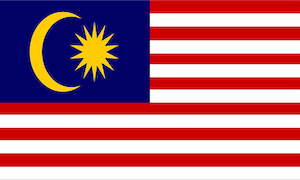
On Wednesday, former prime minister Najib Razak was charged with criminal breach of trust and using his position for personal gratification through his involvement in the 1MDB affair.
Malaysia’s former ruling party, the United Malays National Organization, chose Zahid Hamidi as its new leader in hopes of re-building its support base among the ethnic Malay Muslim majority. Zahid is unlikely to submit to the wave of liberal, multicultural politics that have taken over the Malaysian political foreground. The party suffered from a huge electoral loss after the 1MDB scandal, which is still under investigation for some $4.5 billion that went missing.
Singapore’s Defense Minister Ng Eng Hen agreed with Malaysian counterpart Mohamad Sabu to strengthen security cooperation in the Singapore Strait, which will include joint patrols. Through efforts such as these, the two countries have been reconciling their territorial disputes.
As part of the massive governmental reforms, nine Malaysian government agencies began operating as independent entities on July 1st. They now report directly to parliament.
Malaysia’s largest oil and gas company Sapura Energy Bhd. is looking to take advantage of a recent surge in global oil prices to raise up to $750 million through an initial public stock offering. On the other hand, the government has suspended its China-backed rail link project, which will only be viable with a drastic price reduction by the Chinese contractor. The project is part of China’s Belt and Road initiative and currently costs $20 billion.
Cuba – Environmental activist Ariel Ruiz Urquiola was freed this week after outcry on social media over his arrest. He had been on a hunger strike for several days before being released on parole for “medical reasons.” – New York Times
In Celebration and In Protest—Queer People’s Power in Turkey
Jul 2, 2018
Despite the government ban on the Istanbul Pride March, approximately 1000 people chose to participate in a rally on Sunday, both in celebration of their identities and in protest of the government ban. Police, dogs, and armored vehicles confronted the protesters and eleven people were detained. However, activists continued to march.